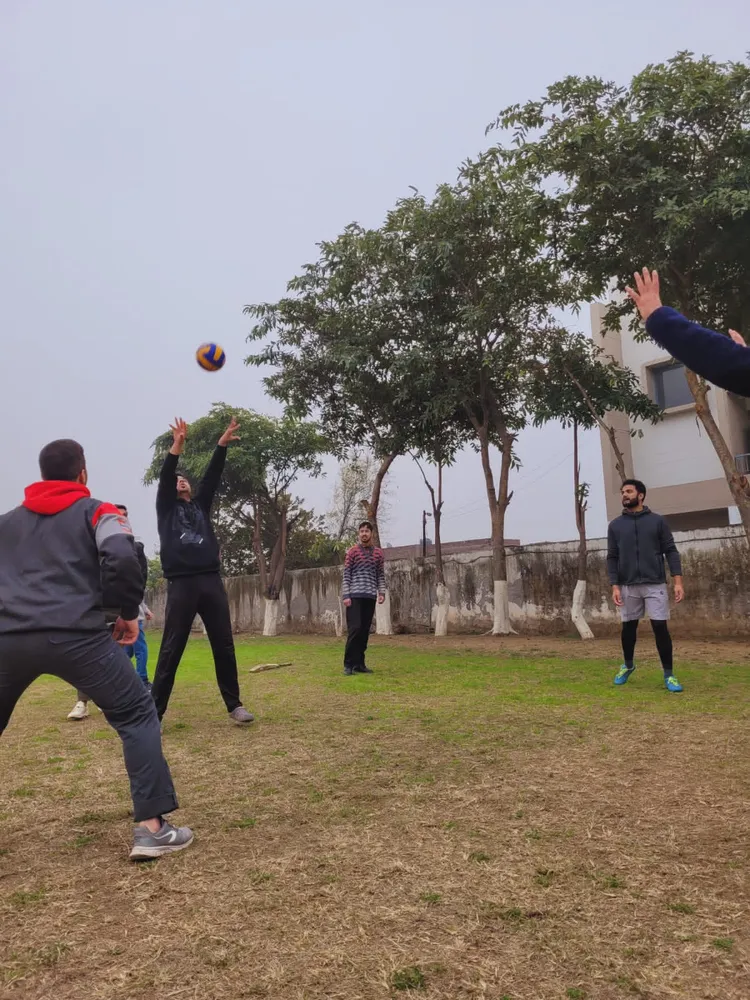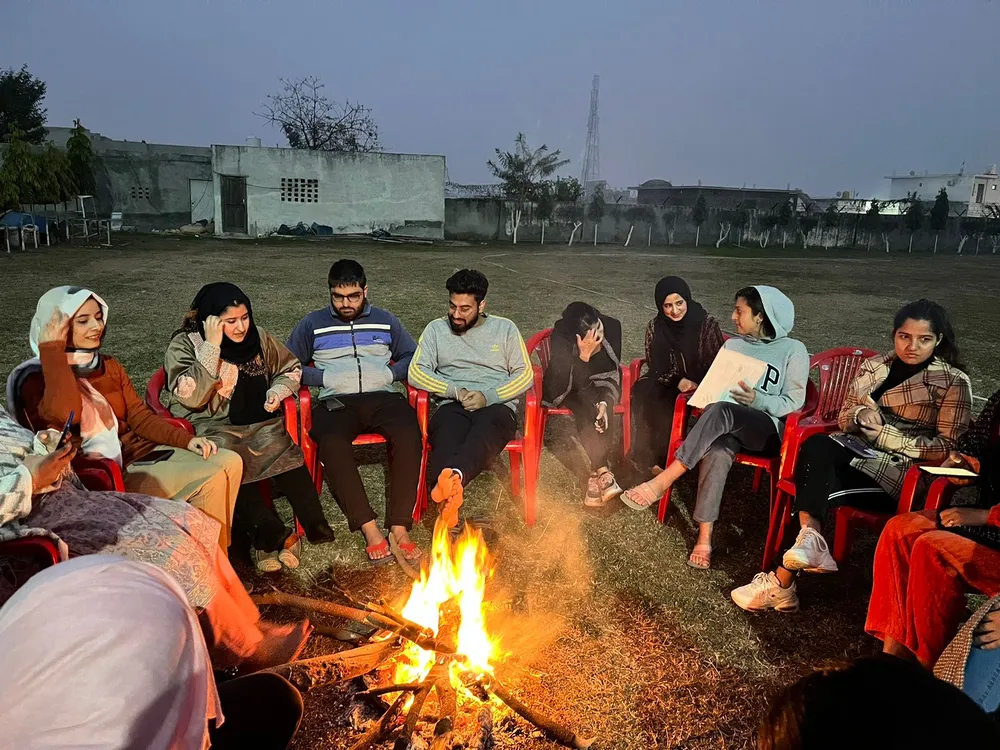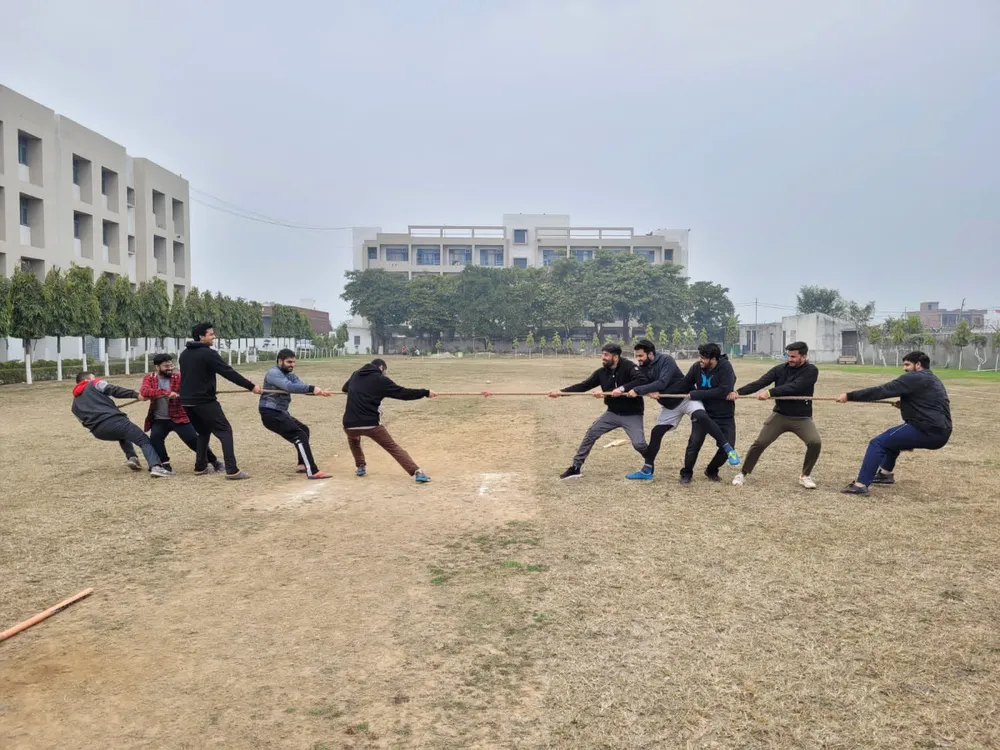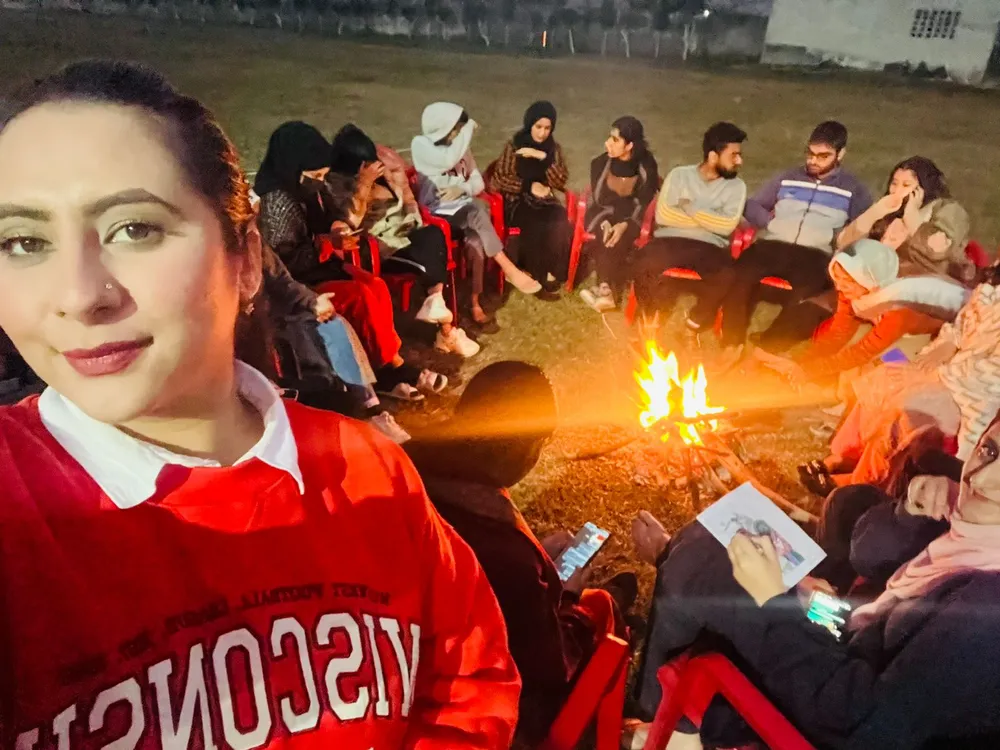Campus Life
The institute has established an environment where all students, faculty, and staff can grow through their potential & capacity without any form of hindrances and obstacles. To achieve this institute has adopted a zero-tolerance policy towards gender biases, religious biases & community biases. The organizational development committee organizes multiple awareness programs for the students, faculty & staff to integrate the values of equality, human rights, and professional ethics. The discipline committee of the college takes strict actions against the persons involved in issues related to ragging, gender parity, and any form of exploitation in the college campus & hostels. At the beginning of the academic year, the new students are given orientation on the code of conduct, their rights & responsibilities, and ethical behaviors expected from them on the campus and in the hostels. Similarly, the newly appointed faculty & staff are given orientation on the above professional and organizational components. Student Handbook & staff handbook given to students & staff where the policy related to the code of conduct & professional ethics are discussed comprehensively. The college has constituted the following committees to address the issues relevant to gender equality, human values, organizational behavior, professional ethics, etc.
Women Grievance Cell (WGC):
This cell is constituted to monitor & take strict action against any kind of ragging, harassment, or
exploitation against female students/faculty/staff.
Anti-Ragging Committee (ARC):
The institute observes a Zero tolerance policy for ragging by any means on the college campus. ARC is an important committee to monitor & stop ragging in the campus & hostels. The committee has staff & student members who conduct surprise visits to the class, common rooms, library & hostels to find out whether any student is involved in ragging
Anti-Tobacco & Drug Addiction cell:
The students of the BDS program start this professional course when they touch adulthood. In this crucial stage, the students are generally prone to develop some sort of risky behavior, such as addiction to tobacco & drugs, etc. This is very harmful to their studies, growth & development. To stop this, the college has constituted Anti Tobacco & Drug Addiction cell, which conducts many awareness programs to help the students to overcome their risky behavior.
Environment protection committee (EPC):
EPC organizes seminars, poster competitions, and debate competitions amount the students to develop their awareness & responsibilities towards the environment. The college organizes yoga camps, cancer awareness & radiation awareness programs to promote health awareness among students, faculty & staff. Blood donation camps are also organized with the help of the state Red Cross society. The students’ activities cell organizes gender awareness programs to promote gender equality on campus. Also, various types of curricular & extracurricular activities concerning team management, stress management, value education, etc. are organized in the college.
Energizing Voices of Students
The institute gives respect to the voices of the students and takes them seriously since they are the largest stakeholder and ensures the leadership qualities of the students need to be groomed dynamically. Therefore, it has mandated a wide representation of students in various internal committees. Students are the members of the anti-ragging committee, committee against sexual harassment, alumni cell, IQAC, grievance redressed cell, library committee, Alumni engagement committee, community empowerment cell, Academic monitoring committee, Hostel Committee, discipline committee, etc. The objective of giving representation to the students is to develop their leadership skills, decision-making skills, and team management skills to a great extent. The students have been involved in the improvement and enhancement of the Quality Assurance process of the College as they are members of IQAC. This includes their feedback on the courses, the contribution of faculty, and participating and representing the institute in various inter-institutional events. Their feedback on the institutes’ overall services is an important pillar of the quality assurance process which helps the college to identify the challenges to be addressed to develop the trust of all stakeholders. The college believes that the interest of students in the development of the institute is a good investment as they are the partners of the academic community. The institute has created a supportive culture for the student’s partnership in the quality assurance process so that they will feel ownership in their work and become active in advancing the academic process of the college as well as the curricular and extracurricular activities, such as Sports, Cultural and Literary activities and students publications in the college newsletter. The newsletter nurtures the freedom of expression and provides an opportunity for students to ask questions and exchange ideas while abiding by the legal and ethical standards of responsible journalism. The editorial board is comprised of students.


Gender Equality
Since its inception, IDS consider Gender Equity as one of the key performance indicators of the institution. It has become a priority and is explicitly linked to the growth & development of the institute. Primarily, the management of the institute focuses on the transformation of the people’s acceptance and support in the implementation of gender-balanced initiatives through better policy and best practices. The institute has constituted anti raging cell, a grievance redressed cell, and a committee for anti-sexual harassment, and it has developed and executed a gender balance policy & procedure in human empowerment strategy. The committees along with other internal committees promote a gender-sensitive environment through awareness programs, orientation programs, and inviting successful women leaders from the community to address the students and staff. The members of the committees do surprise visits on the campus to check for any unwanted incidents taking place. The committee/cells, on receiving any complaint carefully review the background of the complaint and take proactive measures to solve them. The meeting of the committee is held monthly basis and the committee reviews the gender equality status of the campus and recommends suggestions to the college management.
.
Commitment to a Healthy and Safety Campus
IDS is fully committed to the Health, Safety, and Welfare of all employees, students, and common people. A health and safety policy ensures that the institute complies with relevant legislation. It specifies hazard prevention and control procedures and outlines required employee training. IDS has many labs and an OPD operates on the campus. Therefore, we experience various kinds of waste generated regularly, such as Biomedical Waste, Solid Waste, E-Waste, and Liquid Waste. As per the waste disposal policy, these wastes are disposed of in a very systematic way. The institute has signed MoUs with a private agency, certified by the Govt. to collect, transport, and disposed of the waste as per the policy of the Jammu Municipality. The hospital wastes are collected in color-coded bags. These bags are later transported within the hospital to a common collection point, where they are picked up by the agency for proper disposal. Blood-soaked/dripping gauzes are biomedical hazardous waste. These are enclosed in a yellow biomedical waste bag covered with a double bag, labeled with a biohazard symbol, refrigerated and later disposed of. The lead foil inside X-ray packets and lead aprons contains a leachable toxin that can contaminate soil and groundwater in landfill sites after disposal. Therefore, these are disposed of as per standard guidelines of the Govt. Spent X-ray fixer used in dental clinics to develop X-rays is a hazardous material, after delivering the fixer with a recovery unit, it is mixed with developer and water and disposed of down the sewer or septic system. Using a digital X-ray unit and an X-ray cleaner without chromium are other suggested safety measures. The Undeveloped X-ray films contain a high level of silver, therefore; the Disposal Company is advised to dispose of unused films carefully. However, we are using U digital X-ray and minimizing the purchase of new X-ray films.


Campus Happiness Initiative and Inclusiveness
The vision of the institute is, “To become a centre of excellence in dental education and dental care in Jammu and Kashmir” and its mission is, “To provide high-quality dental education and dental care services with strong moral and ethical values to the community at affordable prices with a focus on learner-cantered education and patient-cantered service”. All activities of the institute revolve around these core statements. To achieve the trust of the local community as well as bring diversity to our approach we have developed proactive policy and procedures which are executed in letter and spirit. We have designed a unique program called, “Happy IDS”. Under this drive, we organize various activities for student’s faculty, and staff to bring harmony towards cultural, regional, linguistic, communal socio-economic, and other diversities. Various festivals concerning different communities are organized and all people despite their race, culture, and language participate in them. Orientation programs and awareness activities are conducted on the ethos of various cultures and thoughts. All national festivals and the birthday of great people are also celebrated through awareness rallies, painting, and debate completions. Blood donation camps, Swachh Bharat Abhiyan, No plastic drive, and Small family happy family are some programs organized to develop the social commitment of the people on the campus. Other social issues, such as the Harmful effect of drug addiction, Mobile mania, and how to be safe from online fraud, are some seminars conducted on the campus in 2022 to develop students’ awareness of the harmful social issues. To bring holistic development of body, mind, and soul we organize Yoga, Meditation, and Pranayama camps on the campus. These activities are integrated with the daily schedule of the residential hall students. There are many committees set up on campus to bring inclusive growth to the campus culture. The Anti-ragging committee, committee against sexual harassment, discipline committee, and grievance redressed committee work very proactively to develop tolerance and harmony among the people on the campus. As a prerequisite of the curriculum and its duty toward the local community, the college organizes several dental camps in the local community, rural areas, slums, schools, and offices. This community’s oral health care has created a very positive impact in the nearby community.
.

